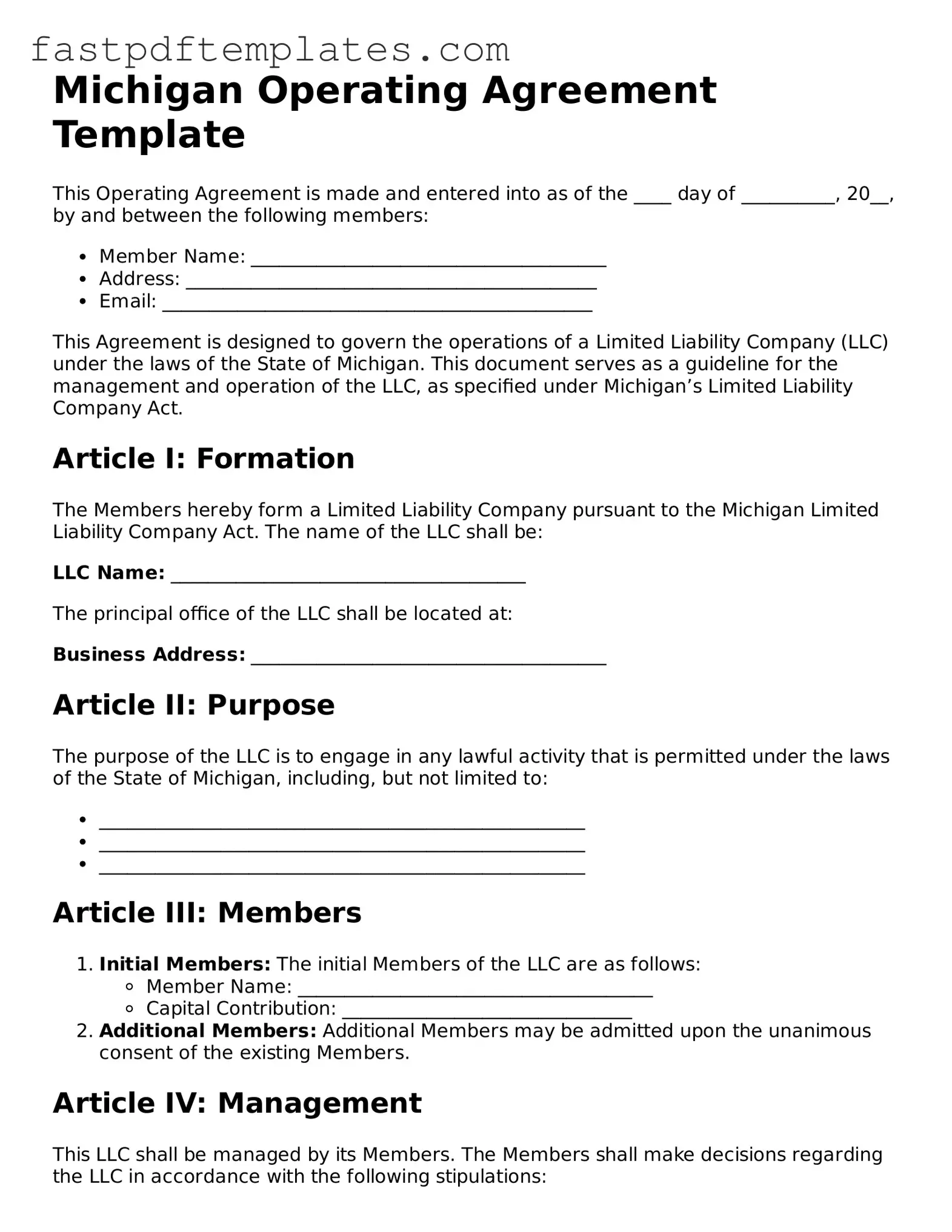Michigan Operating Agreement Template
This Operating Agreement is made and entered into as of the ____ day of __________, 20__, by and between the following members:
- Member Name: ______________________________________
- Address: ____________________________________________
- Email: ______________________________________________
This Agreement is designed to govern the operations of a Limited Liability Company (LLC) under the laws of the State of Michigan. This document serves as a guideline for the management and operation of the LLC, as specified under Michigan’s Limited Liability Company Act.
Article I: Formation
The Members hereby form a Limited Liability Company pursuant to the Michigan Limited Liability Company Act. The name of the LLC shall be:
LLC Name: ______________________________________
The principal office of the LLC shall be located at:
Business Address: ______________________________________
Article II: Purpose
The purpose of the LLC is to engage in any lawful activity that is permitted under the laws of the State of Michigan, including, but not limited to:
- ____________________________________________________
- ____________________________________________________
- ____________________________________________________
Article III: Members
- Initial Members: The initial Members of the LLC are as follows:
- Member Name: ______________________________________
- Capital Contribution: _______________________________
- Additional Members: Additional Members may be admitted upon the unanimous consent of the existing Members.
Article IV: Management
This LLC shall be managed by its Members. The Members shall make decisions regarding the LLC in accordance with the following stipulations:
- Decisions shall be made by a majority vote of the Members.
- Meetings shall be held at least once a year.
- Special meetings may be called by any Member upon reasonable notice.
Article V: Fiscal Matters
The fiscal year of the LLC shall end on the 31st day of December of each year.
The Members agree to keep accurate and complete records of all financial matters and major decisions made on behalf of the LLC.
Article VI: Indemnification
The LLC shall indemnify its Members against any financial losses arising from the LLC's operations, as long as such indemnification is permissible under Michigan law.
Article VII: Amendments
This Agreement may be amended only by a written agreement signed by all Members.
Article VIII: Governing Law
This Operating Agreement shall be governed by and construed in accordance with the laws of the State of Michigan.
IN WITNESS WHEREOF, the Members have executed this Operating Agreement as of the date first above written.
Member Signature: ________________________ Date: ___________
Member Signature: ________________________ Date: ___________

